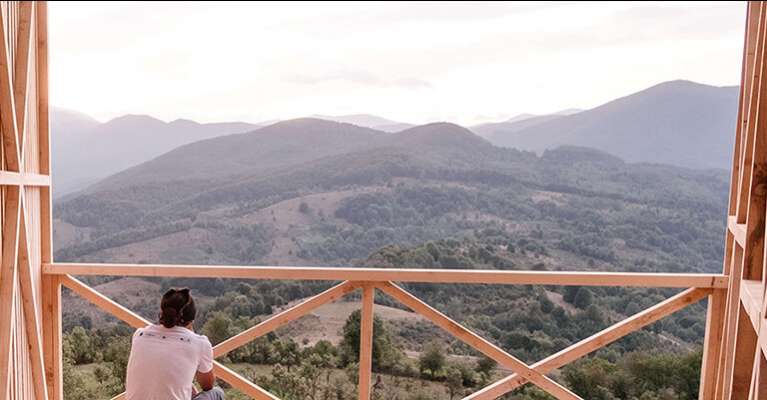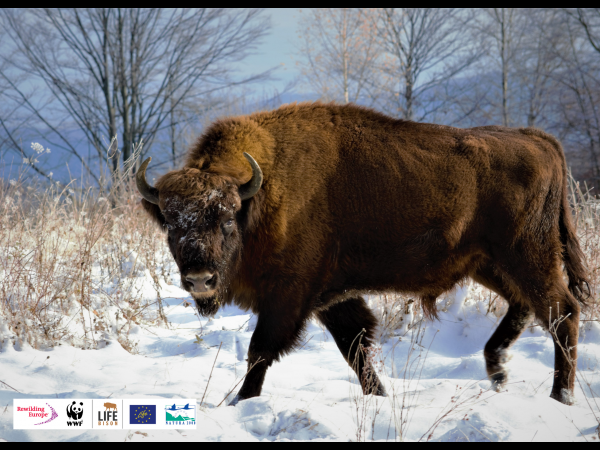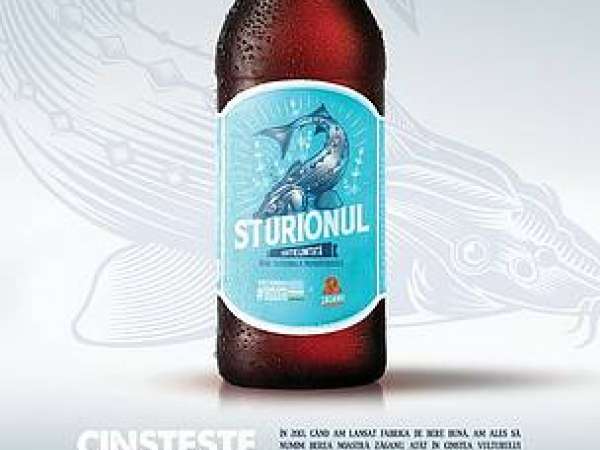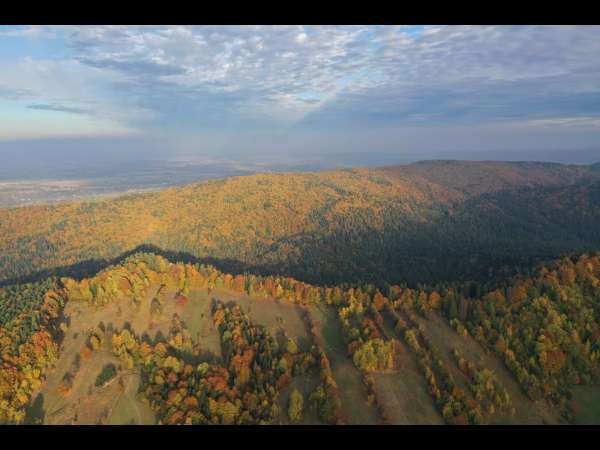The headquarters are located in Bucharest, but local offices exist in Brașov, Reșița, Baia Mare, Cluj-Napoca and Tulcea, constituting altogether a dynamic and varied team, composed of well-trained and motivated specialists expert scientists in the fields of forestry, freshwater, large carnivores that are recognized in their scientific communities. The team is completed by people with valuable experience in public policy and legislation, green economy, communication and fundraising, finance and administration. Together we protect our only home by collaborating with the entire WWF network and beyond.
CONSERVATION FACTS:
Freshwater
- The Lower Danube is the last free-flowing section (1070 km) to the Black Sea and the largest floodplain.
- The Danube Delta Biosphere Reserve is the largest reedbed in Europe, home to 5 000 species and 30 types of ecosystems
- About 2 600 ha of wetlands have already been restored
Forests and Protected Areas
- 24 000 ha of the UNESCO World Heritage are Old Growth and Virgin forests.
- High Conservation Value Forests make up 300 000 ha – including large, intact forest habitats.
- The Network of Protected Areas is to be expanded by 2030 in order to cover 10 % of the country area, meaning approx. 700 000 ha.
- 500.000 ha of new forests should be included in The National Forestry Fund by 2030.
- WWF works on proposals and implementation of efficient solutions against illegal forest exploitation.
-
WWF works on maintaining and improving FSC standards for wood certification for all forests.
Wildlife
- One third of Europe’s Large Carnivores‘ population exist in Romania (bears, wolves, lynx).
- 140 bisons were successfully introduced in 3 areas of Romania.
- WWF is supporting Bear Again - the orphanage for bear cubs.
- WWF is the only NGO in Romania who prioritises saving the remarkable species of sturgeon - a WWF global conservation priority.
- The Lower Danube gives habitat to 4 species of the highly endangered Danube sturgeons.
Governance
-
Romania plays an important role in regional policy frameworks, including the ICPDR, the Carpathian Convention and the EU Strategy for the Danube Region.
Education
- Through projects like Climate Heroes and Picnic Basket, WWF engages with young people in order to creating awareness of how our lifestyle influences the wellbeing of our planet and consequently trigger action from their part.
Panda Labs
- WeWilder is a pilot-project developed in Armeniș (SW of Romania), in collaboration with Magura Zimbrilor Association. WeWilder aims to transform the economic model of the local community into a sustainable one, through the cooperation between the local community and the experts and professionals from urban areas.
IMPACTFUL PROJECTS:
- 2020-2022: Zero Plastic Patrol is a well-established project, developed with the objective of removing plastic waste from the Danube Delta. In 2022, Zero PLastic Patrol was also implemented into a mountain area, in Brasov county.
- 2022: The Gârla Mare Project ends, enabling the restoration of another 600 ha of wetlands.
- 2021: WWF develops a plan for monitoring the key-species in the municipalities of Arad-Deva, part of the Save Green Project.
- 2021: Transylvania Highlands - local communities are brought together to engage in civil action and sustainable development.
- 2021: The Switch to Green Project is launched. The aim of the project is to bring together sustainable initiatives of Romania and to make them known to the public as an alternative to everyday lifestyle.
- 2019-2021: In Maramureș the first network of ecological corridors in Romania (over 15 000 ha) was established. Next step is the development and implementation of management measures to improve the mosaic of habitats that serve as shelter and provide diversified food conditions for large carnivores but also to reduce the wildlife-human conflict (300 000 ha in the cross-border region Hungary-Slovakia-Romania-Ukraine).
- 2018-2021: In Maramures WWF co-developed the management plan for a site of community importance - the secular forests, the “last giants” of Maramureș in Strâmbu Băiuț. The management plan developed within the project represents the basis for the administration of a protected natural area. Following the field analysis, it proposes the operations and actions required to achieve the main purpose of the custodians: the protection and conservation of biodiversity at the site.
- Since 2016 in the Danube Delta: WWF-Romania, together with DDBRA and the local community, have restored more than 900 ha in Mahmudia, a „gate” to the Danube Delta. For the next 3 years, the work will continue with monitoring and renewal of key species in the area. Also, in 2020, WWF-Romania started an impactful project, „Zero Plastic in Danube Delta”, in order to reduce plastic pollution to the benefit of biodiversity.
- 2014: South-West Carpathians - Rewilding Europe and WWF-Romania have been reintroducing European bisons in the Southern Carpathians of Romania since 2014 and are continuing the initiative to establish a viable, free-roaming population of this keystone species. This will further increase the benefits to both wild nature and local communities. This mosaic and complex landscape is home to rare and protected species such as wolf, bear, lynx and to secular forests.
INTERESTING FACT:
We are proud of having not only published scientists in our team - some of them have even discovered new species - but also a few musicians and a lot of artistic people. Whether it's singing, playing an instrument, crafting, ballet dancing, cooking or decorating, the Romanian pandas have a lot of hidden talents.






























